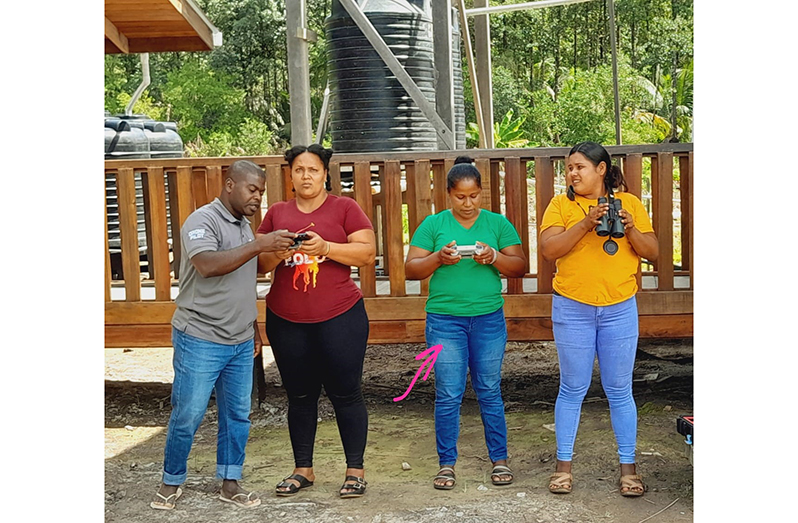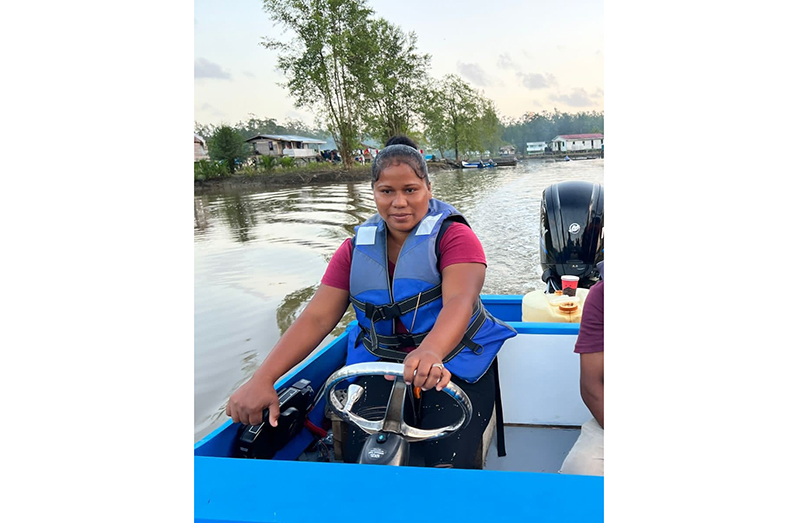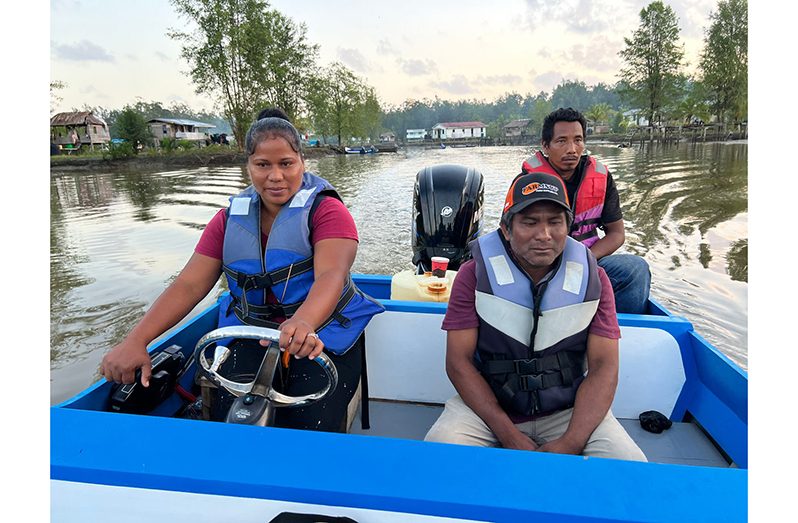EVEN though Madulina Harris didn’t think she could do it, she applied herself wholeheartedly to boat captainship and surprised herself. Harris is a manager at the office of the Guyana Marine Conservation Society (GMCS) and is attached to the Society’s Imbotero Research Centre (IRC) in Region One (Barima-Waini).
Finding her path
Harris, a mother of one, told the Pepperpot Magazine that she benefitted from several training courses to sharpen her skills and become marketable for employment. She participated in catering, management, accountability, camera trapping, report writing, beekeeping and drone training. Harris reported that she was doing part-time work when she was offered to become the cook/manager at the IRC after the other employee resigned.
Harris told the Pepperpot Magazine that she has been working as a manager with the establishment for the past six months, and it has been a learning process. In addition, she is responsible for the maintenance of the building and is also the cook. She explained that she, a tour guide, and another staff member oversee the daily operations of the Imbotero Research Centre.
The Imbotero Research Centre (IRC) is a new field facility that accommodates international researchers in biological sciences, environmental studies, and cultural/ethnographic subjects. It is situated in the Barima-Mora Passage Area (BMPA), the largest intact mangrove ecosystem in Guyana, with good access to the Shell Beach Protected Area, one of the world’s premier nesting places for several species of sea turtles.

It offers comfortable, convenient accommodations to researchers and greatly simplifies the logistics of conducting field research in this environmentally significant region, where accommodations and support services are generally difficult to secure. Caliper drones were introduced to monitor the mangrove forest every quarter, and Harris is currently being trained to utilise one of the two drones.
She reported that with knowledge gained via the training programme, she will be better equipped to use the caliper drones to monitor mangrove forests and the large wiri wiri pepper farms they have in the area.
A new challenge
Regarding her other skill as a boat captain, Harris explained that the learning process began when she was asked by her supervisor, Annette Arjoon, an ambassador for the Barima Mora Passage, if she could drive a 15 and 40-horsepower (HP) engine and boat.

At the time, she knew a bit about the skill but still needed some guidance. With the help of a veteran boat captain, Arnold Benjamin, she was able to get very familiar with steering the boat to an acceptable level. Harris related that Benjamin is a seasoned boat captain who spent some time practising with her before she was left alone.
Life in Imbotero
She stated that she is very grateful to be employed while living in Imbotero, where opportunities and jobs are not always plentiful. She is happy that she can provide a good life for herself and her daughter, who attends the Imbotero Primary School in the riverine community.
Harris noted that Imbotero’s population is just over 400 residents, mostly Amerindians from the Warrao tribe, and their main economic activities include crab catching, fishing, hunting, and farming.
She explained that from the Mora Passage via boat, Imbotero is a small village on the right bank of the creek of the Barima River, and it is about 15 minutes by boat from the nearest village, Smith Creek.



.jpg)










